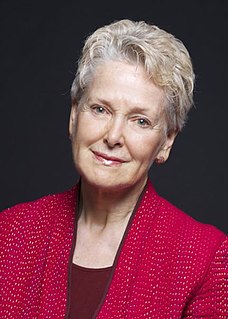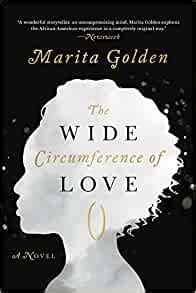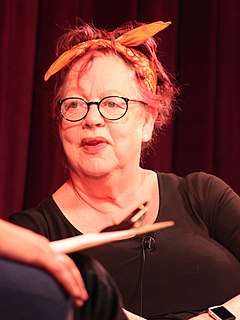A Quote by Margaret Mead
A city must be a place where groups of women and men are seeking and developing the highest things they know.
Related Quotes
The city as a center where, any day in any year, there may be a fresh encounter with a new talent, a keen mind or a gifted specialist-this is essential to the life of a country. To play this role in our lives a city must have a soul-a university, a great art or music school, a cathedral or a great mosque or temple, a great laboratory or scientific center, as well as the libraries and museums and galleries that bring past and present together. A city must be a place where groups of women and men are seeking and developing the highest things they know.
Women tend to be more interested in reconciliation. A Kenyan woman leader said to me, "You know, in a war, men and women want different things. The men care a lot about territory. And they care where the borders are. And they want this whole state. The women," she said, "they want a safe place." And she put her fingers like this, "They want a safe place for their children to go to school without being shot, for their daughters to not be raped."
We black women must forgive black men for not protecting us against slavery, racism, white men, our confusion, their doubts. And black men must forgive black women for our own sometimes dubious choices, divided loyalties, and lack of belief in their possibilities. Only when our sons and our daughters know that forgiveness is real, existent, and that those who love them practice it, can they form bonds as men and women that really can save and change our community.
Poets tend to form loose groups - the "Romantics" or the "Imagists". And sometimes they write manifestoes in the name of these groups. This can be good. It forces the poet and the audience to think. But it can also be dangerous. It can turn into a branding device so that potential readers believe they know all they need to know once they know you've been associated with a certain group or position. It can freeze things in place. That's where thinking stops.
Young women know that something is off; they know that the world is a messed-up place. They know that the world is a sexist place because they've had experiences in their own life; they see things happening to their friends, to their parents. But because feminism isn't widely accepted, because they don't necessarily have access to feminist thought or to feminist groups, they don't necessarily have a language to put behind the feelings and the thoughts that they're having. And they certainly don't have a support system to let them know like, hey, that's okay; you're right, that is screwed up.
I know there are certain men that hate women or don't like women, and in order to make women feel small, they tend to isolate them when they bully them. And women are often humiliated by it and feel they can't do anything about it. So my advice to women would be: there's always support around for those sorts of things and if you feel you're isolated in any way, or being bullied, you must talk to someone about it.
I once heard that women dress for women -- not for men -- and I think that has some truth to it. Men, what do they know? They don't know if you gain or lose five pounds. They're oblivious to those kinds of things. A lot of men will say "I like you just as you are." And you're like "But I'm bloated!" If they're attracted to you, they're attracted to you.



































